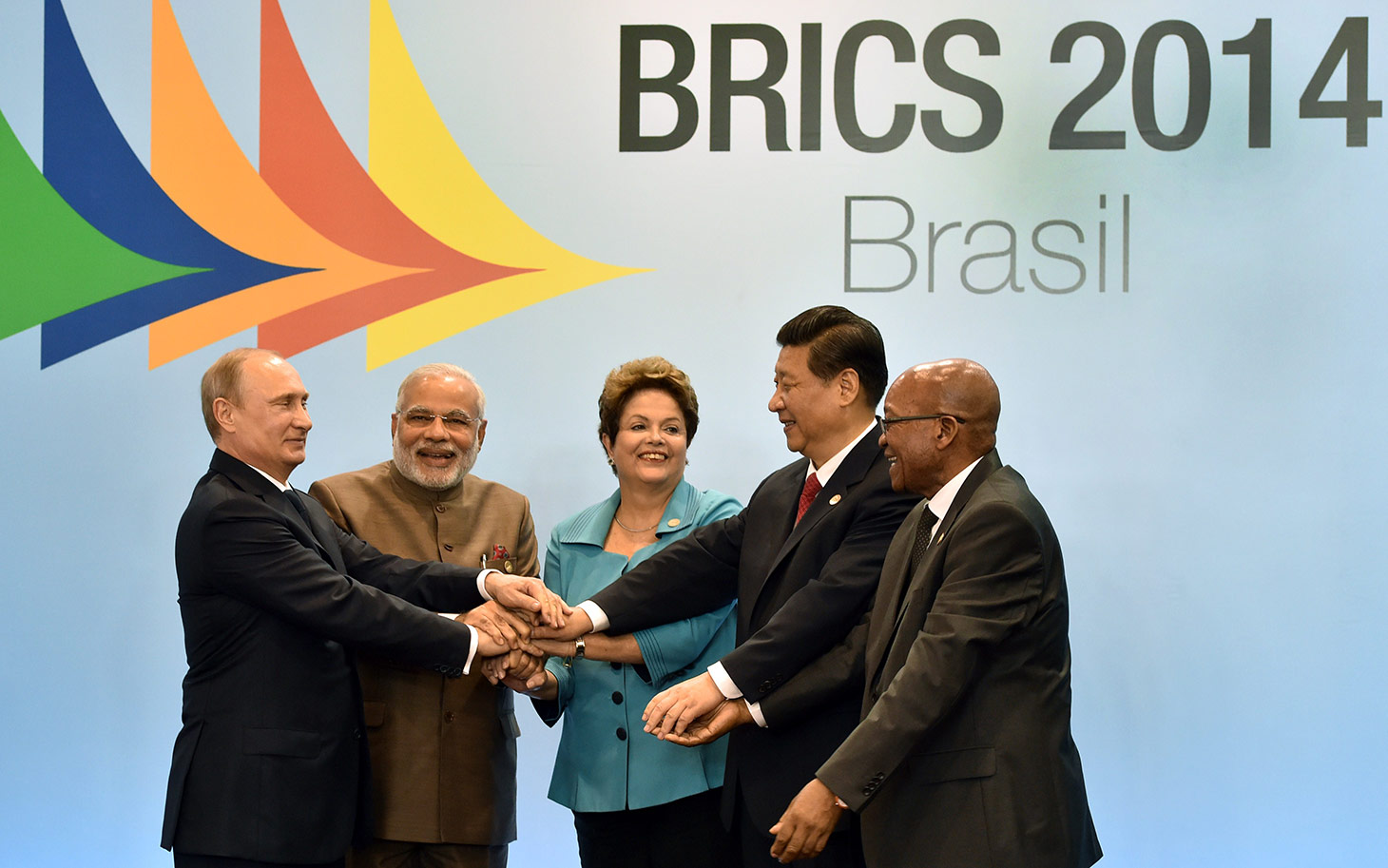Last week, I wrote of the various problems that plague several of the BRIC nations, which include troubling and skewed demographics in India and Russia and a reliance on export commodities in the latter nation and in Brazil (though my friend and fellow columnist Jorge Tamames was right to point out the substantial role Embraer plays in Brazilian industry and exports). I continue the BRIC talk this week with a discussion of the proposed development bank managed by Brazil, Russia, India, China, and South Africa. Several weeks ago these five nations met in Durban, South Africa, and the result was the first formal declaration of intent to create a “BRIC(+1) Development Bank.”
The push by these emerging economies to create formal economic institutions of their own to bypass the IMF and World Bank should hardly be surprising, considering the inherently western-centric ways in which these institutions are structured. There has never been a non-American World Bank president or a non-European IMF managing director, and many argue, as former World Bank chief economist and Nobel laureate Joseph Stiglitz does, that it is time for a new Bretton-Woods agreement that reflects the world of today, not of 1944. It is hardly a new argument that these two institutions have tended to represent mainly western interests. The establishment of a BRIC bank, an instituton controlled by the developing countries who claim to be marginalized by western powers, can be seen as the emerging world’s viable response to nearly seventy years of neo-liberal dominance from those institutions created at Bretton-Woods.
That argument, though, is somewhat simplistic. For one, the very formalization of economic interaction lies at the core of the neo-liberal system that arose after World War II. The creation of institutions designed to foster economic inter-dependency, inject capital into developing nations, and ensure the free flow of this capital between states was at the center of post-war monetary policy, and as much a political leveraging tool of the United States and other western countries as an economic one.
Most likely, a future BRIC developmental bank will follow similar guidelines. It will be designed, as were the IMF and the World Bank, to facilitate an unhindered flow of capital and as such might very well result in similar distributions of power. However, instead of the United States and other European nations acting as creditors (and subsequently controllers) through these institutions, we will find a booming China. The only difference (though perhaps this is the point) is in who will be offering conditional help in the form of loans and who will therefore end up with greater geo-political leverage.
The contribution of each nation to this BRIC bank has been the sticking point for negotiations. As I wrote last week, not all BRICs are created equal. China holds and likely will continue to hold greater economic power than Brazil, Russia, India, and South Africa, which is perhaps why Beijing has no qualms about pushing a greater seed contribution for the BRIC bank out of the $1oo billion total, with an offer to pick up the tab of whatever can’t be paid by other nations. This is an offer at which at which the other nations have balked, no doubt viewing it as China’s attempt to cement its standing as the leader of the group.
The great differences between these (now 5) BRIC nations represents a symptom of an underlying malady, and the greatest hurdle to the establishment of a single developmental bank in the emerging world. South African president Jacob Zuma has already hinted at the underlying colonialist tendencies of China’s heavy investment in Africa, correlating the nation’s trade patterns to those of the western powers in the Bretton-Woods system–Zuma said in 2012 that “Africa’s past economic experience with Europe dictates a need to be cautious when entering into partnerships with other economies.” The great fear is that a new Bretton-Woods system, now centered in the emerging world, will reproduce similar patterns of domination in the underdeveloped world.
